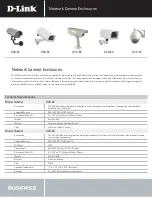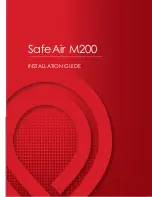
© 2020 Zen-Me Labs Ltd. Zen-Me is patented and trademark of Zen-Me Labs Ltd.
PAGE 6
• Reorient or relocate the receiving antenna.
• Increase the separation between the equipment and receiver.
• Connect the equipment into an outlet on a circuit different from that to which the receiver is connected.
• Consult the dealer or an experienced radio/TV technician for help.
This device complies with part 15 of FCC rules and with ISED license-exempt RSS(s).
Operation is subject to the following two conditions:
1. This device may not cause harmful interference.
2. This device must accept any interference received, including interference that may cause undesired operation.
The symbol on your Zen-Me device or its packaging shows that this is an electronic device and contains a battery. At the end of its life,
your Zen-Me device and battery must be disposed of separately from other household waste. Materials and chemicals in your Zen-Me
device and battery could be harmful to the environment, or cause injury if handled, processed or disposed of irresponsibly. Dispose of
your Zen-Me products and packaging at a recycling centre in compliance with local laws and regulations. To find out where to recycle your
Zen-Me product, contact your local waste management provider or the retailer where you purchased the product.
Information about product recycling, RoHS, REACH and other environmental compliance programs can be found on the Zen-Me App
(Settings/Disposal).
Regulatory Information
Federal Communications Commission (FCC) Compliance
This equipment has been tested and found to comply with the limits for a Class B digital device, pursuant to part 15 of the FCC rules. These
limits are designed to provide reasonable protection against harmful interference in a residential installation. This equipment generates,
uses and can radiate radio frequency energy and, if not installed and used in accordance with the instructions, may cause harmful interference
to radio communications. However, there is no guarantee that interference will not occur in a particular installation. If this equipment does
cause interference to radio or television reception, which can be determined by turning the equipment off and on, the user is encouraged to
correct the interference by one of the following measures:
Industry Canada (IC) Information
This Class B digital apparatus complies with CAN ICES-3 (B)/NMB-3(B).
For other regional compliance information, download the Zen-Me App and go to Settings/Regulatory.
Disposal and Recycling
Disclaimers
Support
• All information within this Safety Guide is subject to change without notice or warning.
• Zen-Me Inc. cannot be held liable for any losses resulting from the use of Zen-Me devices or the Zen-Me App.
• Measurements or data featured in this Safety Guide are based on Zen-Me testing standards.
• Reproduction of this Safety Guide in full or part is prohibited unless authorized by Zen-Me Inc.
For support, trouble-shooting information, Frequently Asked Questions, go to
Zen-Me Support
(zenme.io/support).
Access discussion boards and tips from the
Zen-Me Forum
(zenme.io/forum).


































